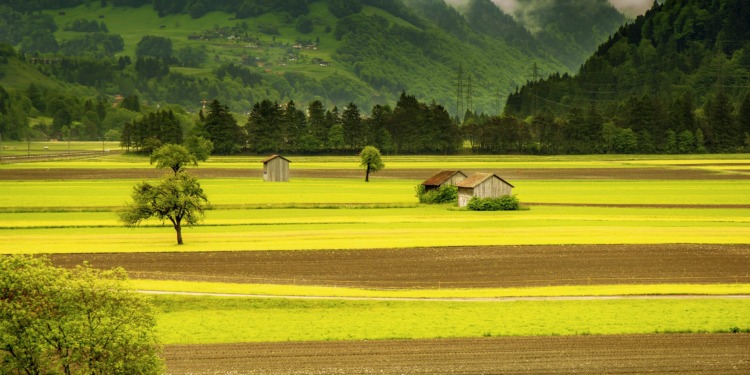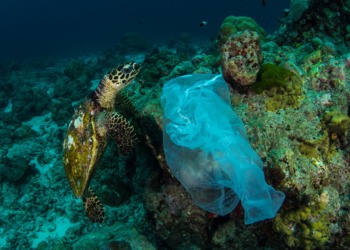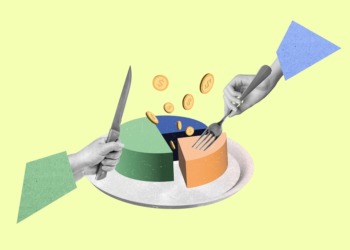Scientist Johan Rockström, while serving as director of the Stockholm Resilience Centre in 2016, presented a new and original way of viewing the economic, social and ecological aspects of the Sustainable Development Goals (SDGs), which has remained a benchmark for those concerned with food and sustainability.
In arguing that all the sustainable development goals are either directly or indirectly connected to sustainable and healthy food, he asked this simple question: will a stronger focus on food help us reach these global goals? I would say: yes!
Unfortunately, to better explain how, we need to turn the concept upside down, from a positive to a negative perspective: anything that jeopardizes good, clean, fair food threatens the whole system and endangers the achievement of all the SDGs, a unicum towards which to strive for a better world.
Goals 1 and 2 (No poverty and Zero hunger) are at risk: according to the 2023 SOFI Report, the situation is worsening. Many more millions of people are currently living in extreme poverty and suffering from increased hunger compared to pre-pandemic levels. The number of people going hungry globally remained relatively unchanged between 2021 and 2022 but increased by 122 million compared to 2019.
Covid 19 played a role of course, as well as the conflicts and wars that are inflaming major exporters of food commodities. More than 3.1 billion people — 42% of the world’s population, i.e., nearly half — couldn’t afford a healthy diet in 2021.
At the continental level, this breaks down to 78% in Africa, 44% in Asia, and 23% in Latin America.
Poverty makes many low-income households unable to afford healthy diets. We should also add food poverty to the picture, that is, the environment in which poor people live: the emergence of supermarkets and megastores brimming with ultra-processed food has contributed to the disappearance of local markets and small retailers.
One of the consequences is the emergence of “food deserts” — areas where people have limited (not to say non-existent) access to a variety of healthy and affordable foods. Communities living in food deserts often struggle with a lack of adequate access to transportation and a limited number of food retailers who can supply healthy groceries at an affordable price, thus strengthening the link between unhealthy diets and food insecurity, poverty and inequality.
This brings us to SDG 3 (Good health and well-being) because diets based on ultra-processed foods, which are high in fat, salt and sugar, together with a lack of fresh fruit and vegetables are the well-established causes of the epidemic of diabetes and obesity affecting the poorest population groups in marginalised areas of the world.
At the opposite end of the supply chain, that of small-scale farmers, poverty casts its shadow on the most fragile, who are increasingly being affected by the climate crisis: water, recently chosen as the theme of UN World Food Day and at the core of SDG 6 (Clean water and sanitation for all), is becoming a resource at risk due to frequent and increasingly severe droughts.
There is an additional element of injustice here: while many rural communities struggle, seeing their crops and animals suffer through drought, large-scale plantations continue to absorb most of the available water.
Monocultures of hybrid seed crops requiring synthetic inputs consume much more water than plantations from indigenous seeds managed using agroecological systems and mixed with different complementary shading plants. Improved management of soil water lies at the heart of food production, and the management of sustainable agricultural water is one of the principles on which agroecology bases its foundations.
Related Articles: From Greed to Good Deed? Placing Nutrition at the Heart of Finance | Beyond GDP: Why Afrikan Countries Should Shift to Decolonized Wellbeing Economics | World Animal Day 2023: Great or Small, Love Them All | Sustainable Development: Bringing Animals Back Into the Fold
Another element of injustice may be found in the fact that while many rural communities are seeing their crops and livestock affected by drought, tourist areas and wealthy urban neighbourhoods are privileged in terms of water supply.
Therefore, unless rules and behaviours based on social justice are adopted, the poorest will continue to experience increasingly difficult living conditions (SDG 10: reduced inequalities).
Halting biodiversity loss lies at the heart of SDG 15 (Life on land). Biodiversity enables agricultural systems to resist environmental shocks, climate change and pandemics. It provides essential ecosystem services, such as pollination and soil fertility. It makes it possible to produce food with a lower impact on non-renewable resources (water and soil) and fewer external inputs (fertilisers, pesticides, antibiotics).
Although biodiversity is essential to food and agriculture, many of its key components for food and agriculture at the genetic, species and ecosystem levels are in decline. The proportion of livestock breeds at risk of extinction is increasing.
Overall, the diversity of crops present in farmers’ fields has declined, while threats to crop diversity are rising. The destruction of natural habitats and the consequent loss of biodiversity creates conditions conducive to the spread of zoonotic diseases and increases the risk of epidemics as a result of spillover (the transmission of viruses from wild to domesticated species and humans).
Fish products are the main source of protein for three billion people, and the fishing industry and fishing activities provide income to 800 million people. Over the last 30 years, the global consumption of fish has doubled.
Between growing demand and extraordinary technological advances in this sector, fishing has become a colossal global industry. The fish we bring to the table is often seen simply as a source of protein useful to our diet, when in fact it reflects Life below water (SDG 14).
Entire populations of marine wildlife are deemed simple commodities, rather than a shared heritage of natural resources with an intrinsic value. In our globalised economy, fish is now one of the most commercialised products in the world.
Large foreign fishing corporations are drawing on their power relations with the governments of low-income countries to take over both marine and freshwater bodies so as to gain access to fishing grounds. This deprives artisan fishing communities of the right to access a nutritious aquatic meal, as well as dooming many young people on islands and coastal areas to poverty.
Furthermore, human activities on land have consequences below water: huge quantities of waste and pollutants are dumped into the oceans.
Pollutants and garbage are spread around the globe by ocean currents. About 8 million tonnes of plastic waste end up in the oceans, as well as fertilisers and pesticides from farms, industrial and nuclear waste, and all of it ends up in our oceans. As long as these trends continue, it is clear that we cannot achieve SDG 14.
How can we fix all this?
Let’s go back to the main assumption from which we started: a stronger focus on food can help us reach the global SDGs.
Food is key to a holistic approach to the creation of a better society. For the change to become real, however, we must assume that a holistic approach brings with it the localisation of SDGs: we must work with local communities at the grassroots level.
Rural communities have selected, preserved and reproduced seeds over time, thus improving the yield, taste and nutritional value of a large number of vegetables, legumes and cereals. Coastal small-scale fishing communities have the knowledge, technique and traditional tools to capture an amount of fish that enables the regeneration of this food resource.
Changing food and farming systems in a genuinely sustainable way marches on the legs of those millions of people in the local economy who are carrying out this ambitious and worthwhile transformation.
For the change to be effective, it must involve the population en masse, and this does not happen through boardroom discussions.
Let’s just clear the ground of any ambiguities right away: can agroecology and industrial agriculture coexist? No.
Agroecology is the only alternative and the only answer to all of the world’s crises: hunger, malnutrition, access to safe and healthy food, the climate crisis, loss of biodiversity.
It regulates economic problems and gender inequality; it stabilises yields; it reduces dependence on expensive external inputs; it produces employment for young people. Finally, it can make a fundamental contribution to achieving the United Nations’ Sustainable Development Goals for 2030.
Editor’s Note: The opinions expressed here by the authors are their own, not those of Impakter.com — Featured Photo Credit: Wikimedia Commons.










